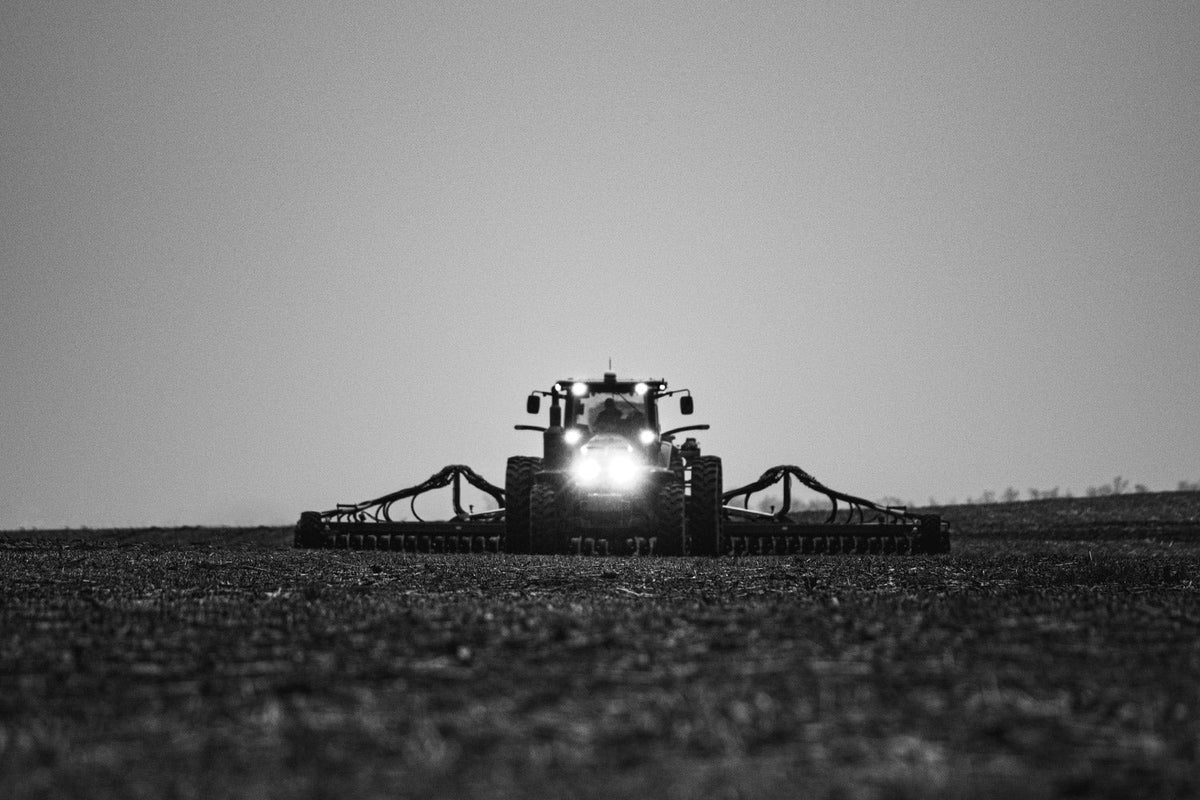
TAYLOR SUMPTION: FARMING OATS ON AMERICAN SOIL
|
|
Time to read 4 min
Cart
Your cart is empty
|
|
Time to read 4 min
In 1882, the United States looked a lot different than it does today. Nearly half of the American workforce were farmers, making agriculture the country’s biggest industry. In North and South Dakota at the time, farms were booming. Pest populations had dropped, plenty of rain fell, and new railroads connected the Dakotas’ grasslands to the rest of the country, making it possible for farmers to reach bigger city markets in Chicago and St. Louis.
Like many other families at the time who were looking for a peaceful, hardworking life, Taylor Sumption’s ancestors homesteaded a piece of land in Frederick, South Dakota and built a farming legacy, one that continues to this day with Sumption’s business Anthem Oats, grown on land farmed by the family’s fifth generation.
Anthem Oats is more than the family business to Sumption. It stands for his commitment to the long-term health of his land. It’s also a symbol of his determination to overcome the challenges that tempt others to abandon their family legacies.
For Sumption, walking away from his land will never be an option.
MANAGING RISK AND REWARD
Sumption grew up in the farming lifestyle. He studied general agriculture at South Dakota State University, then returned home to apply that knowledge at the family farm. Years of industry experience and education made him to look more closely at what they should grow and how they should grow it.
When farming was America’s biggest industry, farmers grew a much wider range of crops to support themselves and the local community. But as technology improved and competition grew, farmers became more focused on the financial side of their business. In an industry where profit margins are everything, choosing only the most profitable crops is a matter of survival.
“The modern farmer is forced, essentially, to plant corn and soybeans,” Sumption explains. “Farming is a risk, but corn and soybeans give the most assurance that you're not going to lose money, so the banks will push you that way.”
Today’s farmer gambles between short-term and long-term success. On one hand, growing anything other than corn and soybeans can make it impossible to pay off the land or meet other expenses. On the other hand, when grown as a monocrop with pesticides, corn and soybeans can have devastating effects on the health of a farmer’s soil, increasing the chance of environmental disaster down the line. This is one of the reasons Sumption founded Anthem Oats.
PUTTING THE LAND FIRST
Sumption wanted to farm crops in a way that protected the land yet still made sense for his family. Having grown up around oat farming, Sumption knew they were a great, sustainable option for his land. He saw them as a lifeline for the soil and was confident he could adapt to a farm-to-table business model.
“Years of frustration with what the agriculture monocrop system does to our soil, our health, and our environment led me to design a product with oats that would be easy to grow, efficient, environmentally friendly, and beneficial for the health of the soil,” he explains.
Sumption and other researchers at the USDA are only just discovering exactly why oats are so good for the soil. “Oats reintroduce really high populations of specific fungi and good bacteria, which increases soil activity and root interchange with nutrients,” Sumption explains. He takes pride in educating others about the benefits of oats as a sustainable crop and hopes to inspire more farmers to follow his methods.
GOING BACK TO AMERICA’S ROOTS
In the days of Sumption’s ancestors, most people knew a farmer or were farmers themselves. But when he traveled the country with his wife, Sumption found that the disconnect between farmers and non-farming Americans had grown.
“When we got to the coast, it seemed like very few people understood modern agriculture, what we do, and how we do it,” Sumption remembers. “The idea of doing something to try to close that gap always resonated with me.”
With Anthem Oats, Sumption hopes to show a side of rural America and agriculture that most Americans don’t get to see.
“When my great-great-grandfather settled here, he wasn’t chasing profits. He was looking for a place to exist, live on the land, and raise a family in a quiet lifestyle,” Sumption explains. “Over the last 75 years, we've drifted away from that. But I think society will shift back. Many people are moving to this area because of the peace and quietness.”
The responsibility of caring for your neighbors lives on in Sumption’s rural town. When someone needs help, the community always jumps into action. “In places like this, when someone gets hurt or sick, people come together to help,” Sumption says. “It's incredible how everyone here bonds and creates that strong sense of community.” It’s that strong support that keeps Sumption pushing when things get tough.
In an industry dominated by risky monocrops, Sumption’s choice to farm oats is as much about protecting the soil as it is about protecting his future. His resilience comes from deep roots—his connection to the land that his great-great-grandfather farmed and an unshakeable belief that farming can still put long-term environmental benefit and social good above quick profits.
“You can feel a bit discouraged now and then. Whenever I need a boost, I just visit a local store or town where our products are sold and chat with people,” Sumption says. “That connection with others—the stories we share—that’s amazing.”







